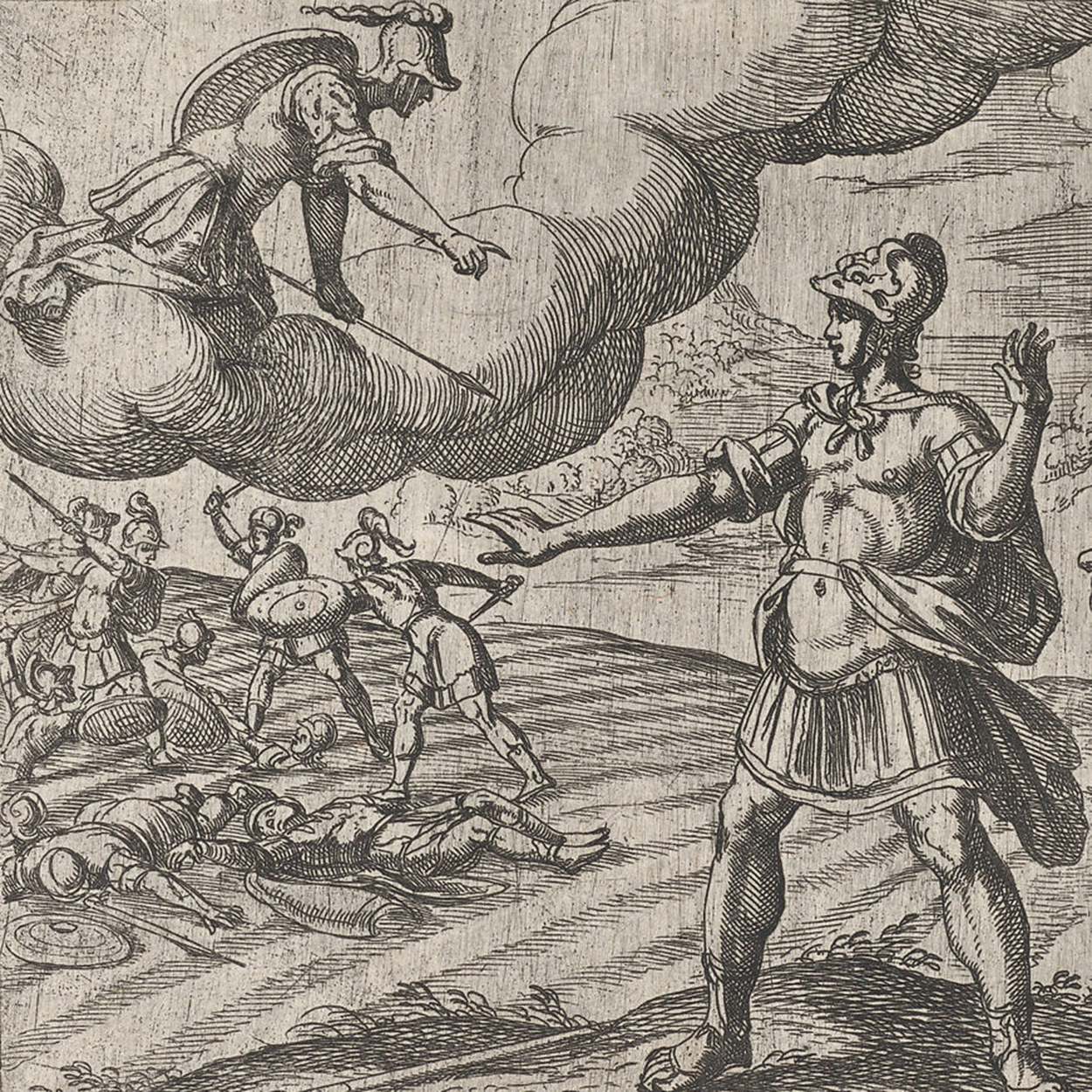It’s fair to say that issues of sexuality and gender sit at the center of the culture war engulfing many faith communities today. The internet is filled with many voices contending on the subject. Many of the loudest voices are ex-members who claim that the Church’s virulent “homophobia” forced them out and destroyed their testimonies. As a same-sex attracted member who has found peace on the covenant path, such voices sadden and bewilder me. I hope this essay will explain why I have chosen to happily stay, even while others leave.
I’ll save you the beginning details. My sexual feelings awakened in my pubescent years like everyone else’s. Eventually, I landed at BYU. My parents, who knew my situation and loved me, assured me everything would be fine. I didn’t believe my parents—convincing myself that BYU hated and harmed people like me. I spent the first year in paranoia, combined with peak opposition to the culture around me. I believed that everyone secretly suspected that I was attracted to men. At the same time, I zealously hid the fact.
Unsurprisingly, I did not like the Church. I even told my bishop I was an atheist.
A slip of the tongue changed my attitude. One night, I drove a friend home after a long evening of studying. He discussed the women he liked and wanted me to reciprocate. I awkwardly tried to dodge the question, using every obfuscation in the book. My response baffled him, and he pressed me further. I finally let the words slip out of my mouth, telling him the truth. And I waited with bated breath. I was still his friend.
As it happened, other people in my life suspected I was attracted to other men (not dating at BYU is suspicious, no matter what). Yet once again, my friends, family, and professors reacted with love and kindness. And my heart softened as I told them the truth. Honesty snowballed, and now my situation is common knowledge. One professor recommended I go to the Office of Student Success and Inclusion (now the Office of Belonging), where I found excellent resources.
When I heard Elder Holland’s 2021 BYU address, it upset me. At the time, I thought it didn’t reflect love and compassion, and I felt unhappy about it. However, as I continued to learn about the context of the speech, I came to better appreciate the purpose of the talk. Unfortunately, some members of the BYU community, past and present, do attempt to undermine faith (though to be clear, I believe that the overwhelming majority of faculty and staff attempt to build faith). Calling such individuals to repentance was necessary.
At this point, my dislike of the Church evaporated. Too many friends and professors reacted lovingly to me for me to continue seeing BYU labeled as “homophobic.” When I saw the “Strike Out Queerphobia” protest attempting to strip BYU of its Title IX exemptions in the fall of 2022, I felt dismayed and angry. It smeared a campus I loved—while trying to convince people like me that we could never find a place at this campus or in the Church. I knew better. The Church was not only my religion, but it was also my community, my refuge, and my people. I didn’t want to leave any of that. I wanted to be a member, though I seriously doubted I could remain fully on the covenant path. I believed I would attend church but still marry a man.
One Sunday afternoon earlier this year, I journeyed up to Salt Lake City to search the cemetery for David O. McKay’s grave. I had read his biography and was convinced he was a prophet and a great man. I found his final resting spot under a marble tombstone, and then I decided to go down to Brigham Young’s personal cemetery. The personal cemetery was closed, but two sister missionaries recommended I go to Temple Square. I complied and took a tour of the conference center. I had a wonderful time. And as I headed back to Provo, I felt prompted to prepare to enter the temple.
At the same time, I restarted my quest to understand early church history. The example of early Latter-day Saint women in polygamous relationships moved me; they sacrificed everything for their faith, often suffering loneliness, isolation, and disapproval. Foregoing sexual relationships with men was a small price for me to pay to carry on their legacy. My resolve strengthened.
I’ve been lucky these past few years—lucky to have friends rooted in the gospel, lucky to have been at BYU, lucky to have a wonderful family. Not everyone is lucky, of course, and luck unfortunately doesn’t transmit. However, there are lessons I’ve learned that have helped me stay rooted in the gospel.
1. Community matters. One of my friends interviewed me about my experiences at BYU. I mentioned that acceptance was important in changing my outlook. She asked if my testimony depended on acceptance. It shouldn’t, but it would be difficult to stay in the faith if I weren’t accepted. Let me be clear: acceptance does not equal permissiveness. You don’t have to agree with a person’s every choice to accept them; you just need to acknowledge their humanity in all its complexity. For those with same-sex attraction, the fellowship of the saints is important. We shoulder each other’s burdens which makes testimony building easier.
2. Ask about the meaning of words. Some like to say BYU is “unsafe” for gays. I’ve never felt unsafe here, so what do they mean? Are they referring to physical safety? If so, what examples can they provide? I suspect “unsafe” is merely a euphemism for disliking the honor code. The same goes for BYU’s alleged lack of “inclusivity.” Again, inclusivity sounds nice but is vacuous. All communities have boundaries. Removing all boundaries empties these communities of substance. Sexual difference sits at the center of Latter-day Saint theology. To remove it would undermine the theology of the Church.
3. Discipleship cuts across political boundaries. I have friends across the political spectrum. Some are leftwing, others are rightwing. Many of these friends and professors, irrespective of political commitment, supported me and reminded me of the blessings of temple covenants. All have firm testimonies of Jesus Christ and His gospel. It’s best not to assume that political affiliation determines faithfulness. The Church is not the province of one political tribe. All who obey His commands can and should be welcomed with open arms.
4. Don’t crucify your mind. Our American culture does not provide much encouragement towards obedience and sexual restraint. Those voices that do offer such positive motivation deserve respect and amplification. Helpful works include Conscience and its Enemies by Robert P. George, a devout Roman Catholic who has taught at Princeton for many years. Ralph Hancock’s talk “Love Wins and Charity Loses” helped me, along with Valerie Hudson’s feminist defense of heterosexual marriage. No argument is won by reason alone, but reason is a powerful tool to reinforce gospel teachings.
5. Love and lust. Gay-identifying men and women often assert their orientation is about love, not sex. I question the truth of these assertions. I’m a male in my early 20’s; of course, it’s about sex. Civil marriage recognizes sexual relationships. The love expressed in them differs from the love expressed for parents, siblings, children, grandparents, or friends due to sex. We shouldn’t demonize sex, but we should think critically about accepting “love” here as the sole driving force. Love and sex can’t be separated. And sexual desire, unconstrained, often leads to disaster (ask Anna Karenina). Since physical infatuation serves as a wellspring of romantic love, romantic love benefits from healthy constraints.
6. God asks for sacrifices. God loves us unconditionally. Consequently, He asks us to do hard things. The more I live, the more convinced I am of this truth. Jesus asks us to take up our cross and follow Him; He does not say there will be no cross. Our life was never going to be simple and straightforward, and we knew that coming to Earth. He doesn’t promise us endless bliss in this life or happy endings. The scriptures are replete with those who suffer for the faith, many of whom die for their faith. Most of us (including me!) don’t sacrifice that much. We are simply asked to keep his commandments.
And honestly, being attracted to other men pales in comparison to other challenges. As I’ve opened up about my challenges, others have opened up about theirs. And it astonishes me what people suffer, ranging from family problems to mental health issues. After listening to so many of these struggles, many of my own were put in perspective and so I could count my many blessings. Acceptance does not equal permissiveness.
Recently, I had the opportunity to receive my endowment. I’m dramatic, so I invited as many people as possible. As it happened, this was the last day before I left Utah for the foreseeable future. This meant leaving friends and family for a long time. As I passed into the Celestial Room, I felt overwhelmed. One by one, friends came up and said their goodbyes. As we parted, I remembered that the purpose of the temple is for these relationships to last forever, no matter what happens here on earth. And as I go back to the temple, I feel the peace that all will be set right in the end. Definitely worth the sacrifice.
















